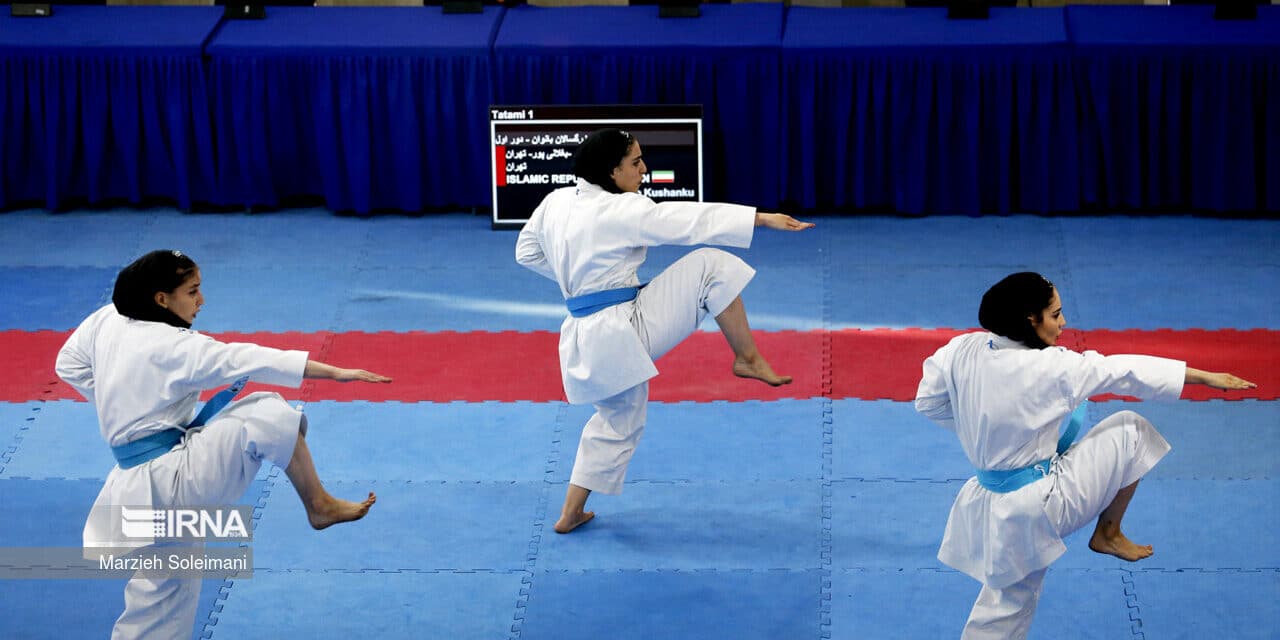Fighters trying to qualify for the Iran women’s karate national team, Tehran, June 16, 2023 (Marzie Soleimani/IRNA)
Originally written for The Guardian:
Shokoufeh Jafari was only two when her family fled Afghanistan. In August 1998, as the Taliban closed in on the Bamiyan valley and targeted families of former military personnel, the Jafaris crossed the border into neighbouring Iran in search of refuge.
Now 29, Shokoufeh and her sisters, Maryam, 23, and Mandana, 20, have built a life in the Iranian city of Shiraz defined by resilience and a passion for Kyokushin karate.
Shokoufeh began training at 13, followed by Maryam at seven and Mandana, who was nine. Shokoufeh recalls how their father, a former military officer, encouraged them to pursue the sport, believing it would build their confidence and strength.
Our father was the only one who believed in us from the very beginning. He enrolled us in private karate classes because it wasn’t offered at school. We never trained in Afghanistan, but with his support we were able to practise in Iran, join the [Afghan] national team, and compete internationally.
Karate became a shared language for us, one that strengthened not only our physical power but also our spirit and will.
“In a society that grows more patriarchal every day, having a father who unconditionally supports his daughters is truly a great blessing,” says Mandana.
Shokoufeh remembers the thrill of her first official national tournament win, recalling watching her proud father holding up the trophy. Their crowning achievement came in 2019 at the Asian Kyokushin Karate Championship in Shiraz, the first time all three sisters participated in an international tournament.
“That day I realised karate wasn’t just a sport for us, but also about family and support,” says Mandana.
But the Taliban’s return to power in August 2021 shattered their dreams of ever returning home to train and compete. All organised sports for women in Afghanistan were halted.
“I recall waking up that morning and hearing that Kabul and then all of Afghanistan had fallen,” Shokoufeh says. “My body felt frozen. Despair consumed us, and for months we prayed that everything would be fixed, that Afghanistan would be freed. But that hasn’t happened. The education and dreams of thousands of girls like us in Afghanistan have been destroyed.”


IRIB documentary shows declassfied footage of Iran’s missile forces during the Israel war: https://www.mehrnews.com/news/6610691
Israel failed to hit Iran’s underground missile complexes (which are shown untouched in the film) but did hit some launchers of missiles that were transported onto the surface using drones.
Family Searches for Missing Teen Iran Says Never Existed
https://iranwire.com/en/features/145278-family-searches-for-missing-teen-iran-says-never-existed/
Documents Reveal How Iran Faked Case Against Executed Database Specialist
https://iranwire.com/en/features/145246-documents-reveal-how-iran-faked-case-against-executed-database-specialist/